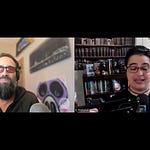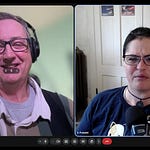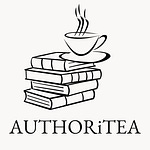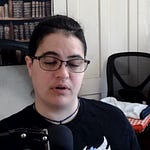A friend of mine messaged me this past week with something he’s struggling with. The conventional wisdom is that you can’t really write well if you don’t read. This is because in order to write well, we need to study the craft. It’s like trying to paint without seeing other painters. As a general rule, you can’t really write if you don’t read. However, in his case, he has multiple disabilities that prevent him from reading the way he wishes he could. This isn’t just a matter of, “I don’t like reading, so I don’t want to.”
Were he to just not enjoy reading but wanted to be an author, I’d give him a lot of side-eye. However, in the circumstance that someone just plain cannot read due to reasons outside their control, I have a few suggestions people can deploy to facilitate that process.

Audiobooks
I know this goes without saying, but audiobooks count as reading. It’s the same words in the same order; the only difference is that it’s read aloud by a human voice (or by a screen reader if that’s what you have). If you cannot afford audiobooks, most tablets have screen reader software that will read the story to you. It won’t be anywhere near as enjoyable as a human narrator, but it will get the job done.
My friend specifically mentioned focus being an issue for him, so I suggested that he put on an audiobook while he does something like cleaning or cooking or going for walks (or playing solitaire). As someone who struggles with focus issues, I have put on podcasts or audiobooks while knitting or painting D&D minis doing various crafts that allow me to pay attention to the story while keeping that part of my mind busy.
Also, for dyslexic folks, audiobooks (and podcasts, as mentioned below), strip away the difficulty associated with reading text on a screen or page.
Short Stories
Another method that can help people who struggle with attention is to pick up short story collections or read flash fiction. These also will give you the opportunity to read but won’t demand as much long-term focus and attention as a novel does. It still gives you the capacity to see how stories are composed and how prose is written (though short story pacing is different than novel pacing) and gives you an idea of how those kinds of things can be accomplished.
Narrative Podcasts
Much like with audiobooks narrative podcasts are heavily scripted and can also teach you a lot about characterization and pacing. They are also often vignettes with individual episodes covering single stories or short arcs. My favorite at the moment is Old Gods of Appalachia, which is a horror anthology podcast (without jumpscares). The storytelling is phenomenal, and the descriptions are brilliant. Much like with audiobooks, these offer the opportunity for you to do things like craft, play solitaire, clean, walk, or do other activities to help your focus if you struggle with that element.
Consume Media Intentionally
Next, while it’s not the same as consuming things written as prose, you can look at other media with a critical eye to take in things like how they do characterization, how dialogue is done, how they handle pacing, etc. While it isn’t the same as reading a book, and the pacing for a novel is different than, say, a video game, it still provides useful data you can lean into and pull apart.
Consuming media like television, movies, video games, or other storytelling methods (comics, graphic novels, etc.) can teach you a lot of things about the craft of writing. It will change your relationship to that media, yes, but it’s something that will actually help. If you can learn story structure and learn to feel and predict the beats and when they’re coming, you’ll be in a good position to apply such structures to your own writing.
It’s absolutely true that video games, comics, graphic novels, and television shows have differences from the written word. That’s categorical fact. However, storytelling is still storytelling. Even if you watch Critical Roll and study what about it makes it so damn engaging, you’ll be learning something.
Instructional Videos
You can find a wealth of information about the craft of writing online. YouTube has a ton of videos about the craft of writing. You can also study things written for Dungeon Masters for D&D when it comes to world building, characters, and so on. There’s a deep wealth of information about the craft to be found on there in video format.
While this won’t necessarily teach you all the things about the written word, you can learn a great deal that way without having to read.
Study All The Words
This is the last piece of advice I have for you. Study the written word and learn everything you can about it. What I mean is even if you come across a funny Tumblr post someone shares as a meme, evaluate it. What makes it good? What about the wording or the content is enjoyable to you?
If you’re reading this blog post, what about how I am using language connects with you (or doesn’t connect with you)? Are there text messages that you’ve received that were hard to understand? What would make them better? You can do this with anything from social media posts to news articles.
Final Thoughts
It is absolutely true that the best and fastest way to learn what you need to know about the craft of writing words is by reading things in the genre you’re wanting to write in. There’s no denying that is going to be the most effective means of learning the craft. However, just because it’s the most effective means of learning it, that doesn’t mean it’s the only way of learning it.
People with disabilities are accustomed to having to find our own path and learn how to do things in ways that make sense for our needs because the conventional advice often doesn’t work for us. That’s just how things are when your brain or body doesn’t work “like everyone else’s.”
I hope this list provides some useful and effective alternatives for people who just plain cannot read in the traditional way (for whatever reason). The ultimate thing here is you’ll need to find a way to study the craft one way or another, but how you do it is wholly up to you, and there are multiple approaches. You just have to try to find the ones that work for you and cobble them together into a method that makes sense for your life and your abilities. There is no shame in that, and please never feel like you’re lesser just because you have to do things another way.











